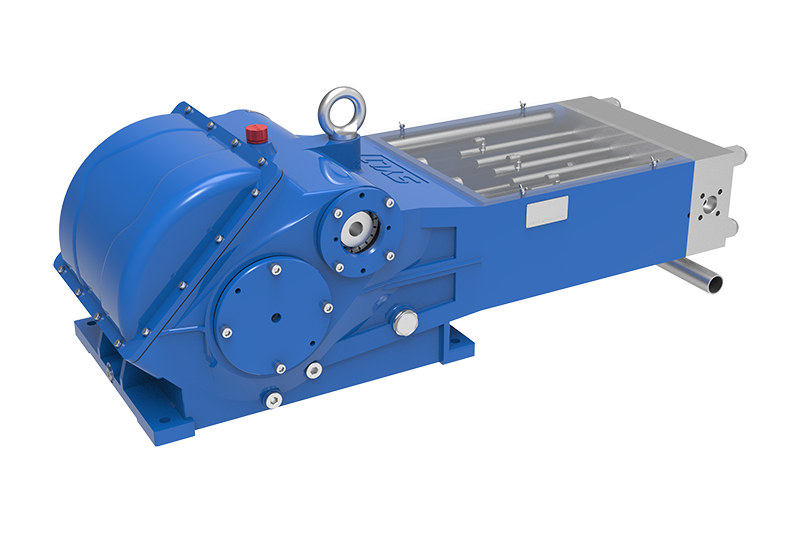Why Choose High Pressure Low Flow Pumps for Efficient Fluid Transfer?
Fluid transfer is a crucial aspect of various industrial applications, and the type of pump selected plays a significant role in ensuring efficiency and reliability. Among the wide variety of pumping solutions available, **high pressure low flow pumps** stand out due to their unique capabilities. In this article, we will delve into the reasons why these pumps are highly favored for efficient fluid transfer, exploring their design, functionality, and practical applications.
Understanding High Pressure Low Flow Pumps
High pressure low flow pumps are engineered to maintain high pressure while transferring relatively small volumes of fluid. These pumps are characterized by their ability to produce significant pressure differentials, making them ideal for specific applications where precision and efficiency are paramount.
Key Features of High Pressure Low Flow Pumps
1. **Compact Design**: The design of high pressure low flow pumps is typically compact, making them suitable for confined spaces where traditional pumps may not fit.
2. **Energy Efficiency**: These pumps are designed to operate efficiently, consuming less energy compared to standard pumps while delivering optimal performance.
3. **Durability**: Constructed from high-quality materials, these pumps are built to withstand harsh operating conditions, ensuring longevity and reducing maintenance costs.
4. **Versatility**: High pressure low flow pumps can handle a variety of fluids, including corrosive substances, making them suitable for diverse industrial applications.
How Do High Pressure Low Flow Pumps Work?
The operation of high pressure low flow pumps relies on specific mechanisms tailored to generate high pressure at low flow rates. These pumps typically employ positive displacement or centrifugal mechanisms.
- **Positive Displacement Pumps**: These pumps trap a fixed volume of fluid and then force it out through the discharge valve, creating a high pressure environment.
- **Centrifugal Pumps**: Although primarily used for high flow applications, specialized centrifugal pumps can also be designed to achieve high pressure with reduced flow rates by adjusting impeller design and speed.
The Advantages of Using High Pressure Low Flow Pumps
Understanding the advantages of high pressure low flow pumps can help industries make informed decisions regarding their fluid transfer systems.
1. Enhanced Efficiency
High pressure low flow pumps contribute to enhanced efficiency in fluid transfer operations. Their ability to maintain high pressure enables faster processing times, reducing the energy consumption associated with prolonged operations.
2. Precise Control over Fluid Transfer
One of the standout benefits of high pressure low flow pumps is their capacity for precise control over fluid transfer. This is particularly crucial in applications such as chemical processing and pharmaceuticals, where accuracy is non-negotiable.
3. Suitable for Complex Applications
These pumps excel in complex applications where fluids must be delivered at specific pressures while minimizing flow rates. Industries such as oil and gas, water treatment, and food processing frequently rely on high pressure low flow pumps to meet their demanding operational requirements.
4. Reduced System Stress
By managing high pressure without excessive flow, these pumps reduce stress on piping and other components of the fluid transfer system. This leads to fewer leakages and failures, ultimately saving organizations time and money in repairs and replacements.
Applications of High Pressure Low Flow Pumps
High pressure low flow pumps find a vast range of applications across different industries. Some of the most notable include:
1. Chemical Processing
In the chemical industry, precise handling of corrosive and hazardous materials is crucial. High pressure low flow pumps allow for safe and efficient transfer of chemicals, minimizing contamination risks and ensuring compliance with safety standards.
2. Water Treatment
These pumps are commonly used in water treatment facilities to manage high pressure in filtration and reverse osmosis systems. Their reliable operation ensures that clean water is consistently delivered.
3. Oil and Gas Industry
In oil extraction and refining processes, maintaining high pressure is critical. High pressure low flow pumps enable the efficient movement of crude oil and other hydrocarbons, supporting the operational efficiency of oil and gas facilities.
4. Food and Beverage Industry
The food and beverage industry requires strict adherence to hygiene and safety standards. High pressure low flow pumps provide a reliable means of transferring liquids such as juices, syrups, and sauces while minimizing the risk of contamination.
Factors to Consider When Choosing High Pressure Low Flow Pumps
When selecting a high pressure low flow pump for your application, several factors must be taken into account:
1. Fluid Characteristics
Understanding the properties of the fluid being transferred (viscosity, temperature, chemical compatibility) is essential for selecting the right pump type and material.
2. Required Pressure and Flow Rate
Determining the necessary pressure and flow rate will guide the selection of an appropriate pump. Ensure the pump specifications align with the operational requirements of your system.
3. Energy Efficiency
Look for pumps that offer energy-saving features. This not only reduces operational costs but also contributes to sustainability efforts within your organization.
4. Maintenance Requirements
Evaluate the maintenance needs of the pump. Selecting a model that is easy to maintain can save time and resources in the long run.
FAQs About High Pressure Low Flow Pumps
1. What is the primary advantage of high pressure low flow pumps?
**High pressure low flow pumps are designed to efficiently transfer fluids at high pressure while maintaining low flow rates, making them ideal for precise applications.**
2. Are high pressure low flow pumps suitable for corrosive fluids?
**Yes, many high pressure low flow pumps are constructed from materials that can handle corrosive substances, making them suitable for various industrial applications.**
3. How do I determine the right pump for my application?
**Consider factors such as fluid characteristics, required pressure, flow rate, and the pump's energy efficiency to select the appropriate model.**
4. Can these pumps be used in food processing applications?
**Absolutely! High pressure low flow pumps are commonly used in the food and beverage industry due to their ability to maintain hygiene and transfer liquids safely.**
5. What are the maintenance requirements for high pressure low flow pumps?
**Maintenance requirements vary by model, but regular inspections, lubrication, and monitoring for wear and tear are generally recommended to ensure optimal performance.**
Conclusion
In conclusion, high pressure low flow pumps offer a myriad of benefits that make them the preferred choice for efficient fluid transfer across various industries. Their unique capabilities, including enhanced efficiency, precise control, and suitability for complex applications, position them as essential tools in modern industrial processes. By understanding the advantages and considerations associated with these pumps, organizations can make informed decisions that optimize their operations and contribute to overall success.
The 17th China International Powder Metallurgy and Hard Alloy Exhibition
The 2025 17th China International Powder Metallurgy and Hard Alloy Exhibition from March 10-12, 2025, at the Shanghai World Expo Exhibition and Convention Center, Hall H1, B425. We welcome guests to visit.
"Private custom" product design, reliable and durable finished products
"Private custom" like product design, reliable and durable finished products, professional and timely after-sales service. It is the "three basic concepts" that the company adheres to from the beginning until today ".
Experienced market research team, independent product development concept
We have experienced mature market research team, independent product research and development concept, professional design and manufacturing technology so that the company's products can be adjusted according to the specific requirements of customers timely design







